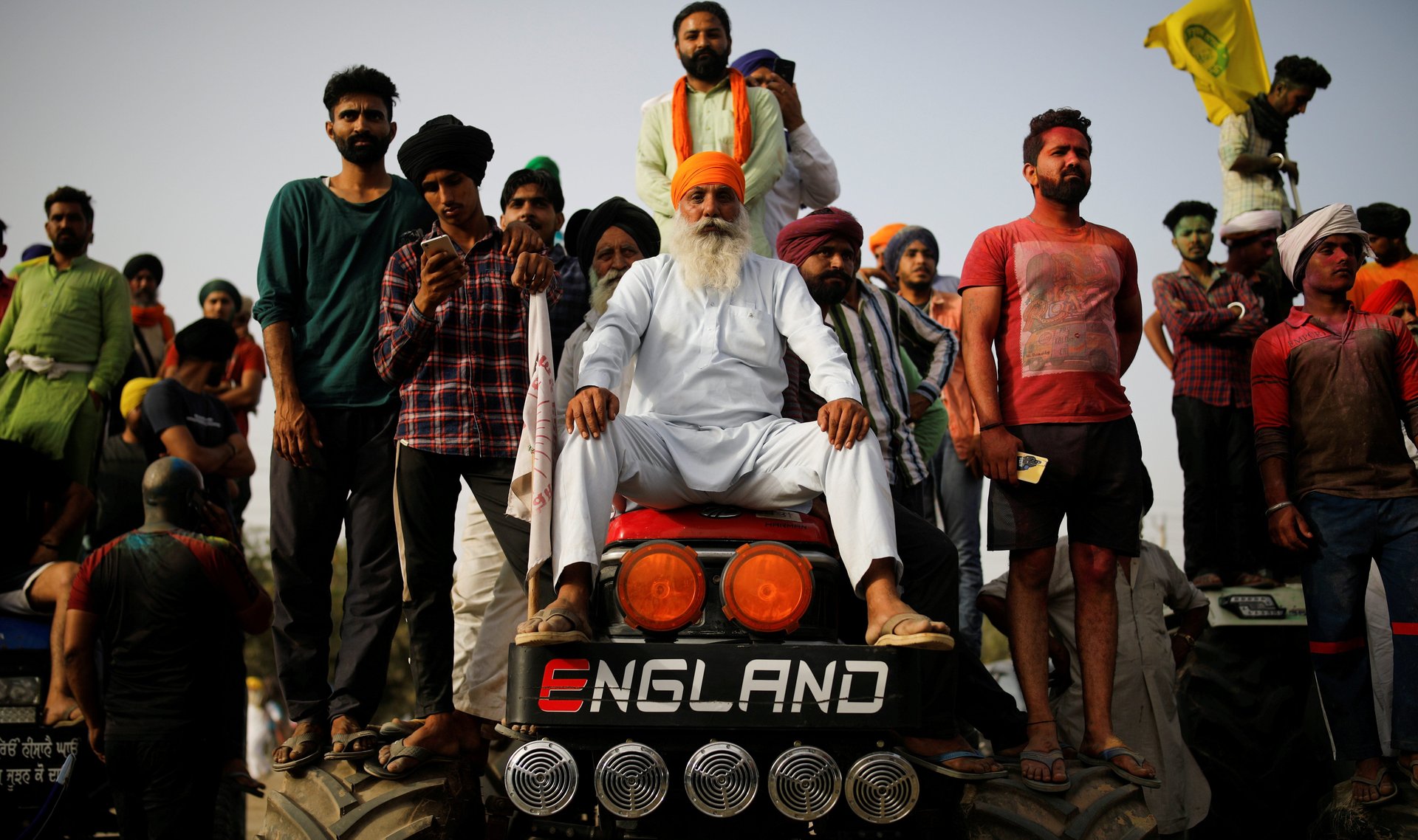Come hail or pandemic, India’s farmers have been protesting for six months
Even as the second wave of Covid-19 shifted the limelight away from their determined protests, thousands of farmers in India continue to demand the reversal of three laws that were passed by the Narendra Modi government in September 2020.


Even as the second wave of Covid-19 shifted the limelight away from their determined protests, thousands of farmers in India continue to demand the reversal of three laws that were passed by the Narendra Modi government in September 2020.
Today (May 26), farmers across India are observing a “black day” where they will hoist black flags from wherever they are as a sign of their demand to repeal the laws, which are believed to favour large industries. The black day marks six months of the protest, which made international headlines for its scale and planning.
Despite state-level lockdowns, earlier this week, several farmers from Punjab and Haryana travelled to protest sites on the outskirt of Delhi to support those who have been sitting at the border of the national capital since November.
Meanwhile, the Narendra Modi government has appealed to the protesting farmers to call off their mass demonstration as it could become a “superspreader” event. India is currently reporting around 200,000 fresh Covid cases a day and the disease has now spread into the country’s hinterland.
At least 12 opposition parties, including the Indian National Congress, have extended their support to today’s protest.
Farmers’ protest amid the Covid-19 crisis
The protest is likely to remain limited to the capital city’s borders as the Delhi police have not given permission for any gathering or demonstration within the city. Delhi has been under lockdown since April 19.
“We urge people not to gather as the virus could spread and the cases escalate. We appeal to the citizens to observe COVID- appropriate behaviour and lockdown which is still imposed in the city. There is no permission for gathering and demonstration due to the ongoing situation,” Delhi Police said in a statement.
Samyukta Kisan Morcha (SKM), an amalgam of over 40 protesting farmer unions, has asked all participants to ensure the protest remains peaceful.
Meanwhile, the National Human Rights Commission (NHRC) has issued notices to the Delhi, Haryana, and Uttar Pradesh governments over allegations that protesting farmers are not following Covid-19 safety norms. NHRC in its statement on May 25 said that India is reeling under a “scary second wave of the coronavirus pandemic and these protesters are not only putting their lives in danger but also posing a risk to the others in rural areas as potential carriers of the virus.”